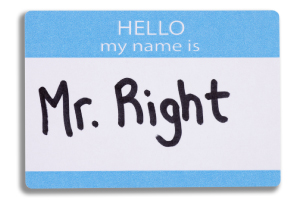 The human brain is an amazing thing. It can detect danger – and get you moving – before you’re even conscious of the burglar in your room. It’s able to translate these weird shapes into meaning – even when it’s cmoptele nosnesne – and it’s so good at scanning and making sense of the world, it can find patterns in anything. Cloud animals, anyone?
The human brain is an amazing thing. It can detect danger – and get you moving – before you’re even conscious of the burglar in your room. It’s able to translate these weird shapes into meaning – even when it’s cmoptele nosnesne – and it’s so good at scanning and making sense of the world, it can find patterns in anything. Cloud animals, anyone?
But it’s also pretty thrifty – and it has to be. At only 2% of your body mass, it uses up 20% of your energy, so it cuts corners wherever it can, to be as efficient as possible. Mostly, that frees your brain up to process the really important stuff… but there are times when those short-cuts can really get in our way.
Which brings us to confirmation bias.
Simply put, it means that what you expect to see typically dictates what you see.
With so much information to filter, your brain cuts corners by working off your assumptions – effectively scanning your world for confirmation that you’re right. That person you find annoying? There they go again. Those pot-holes in the road? You’ll see them everywhere.
Confirmation bias is the pair of glasses you wear, that casts everything you see in the light you expect. And while our lenses may be unique, we all wear glasses.
This obviously has implications for your relationships – and for your temper, driving – but it can also seriously de-rail your career.
You cannot afford to choose, change or develop a career based on assumptions or expectations.
An assumption is a hypothesis, a theory, or a guess… and an expectation, a hope. Those are pretty flimsy foundations on which to build a career, and the consequences of getting it wrong are just too high.
So what’s the antidote? Cultivate curiosity.
To out-smart confirmation bias, you need to know – and test – your assumptions.
If you’re considering studying law, ask yourself why. What do you think you know? What does law look like? What assumptions are you making? Write them down, and then test them in the real world; talk to law students, ask about assignments, read law textbooks, scan law blogs, talk to lawyers. Don’t just ask for proof of what you think you know – go looking for opposing evidence. Think like a lawyer. Walk around your subject, and examine it from multiple angles. Be curious.
The idea is to challenge yourself, and really testing our beliefs can be challenging. It’s easy and comfortable to be ‘right’ now, but the cost of that may be living with your ‘wrong’ later on.



